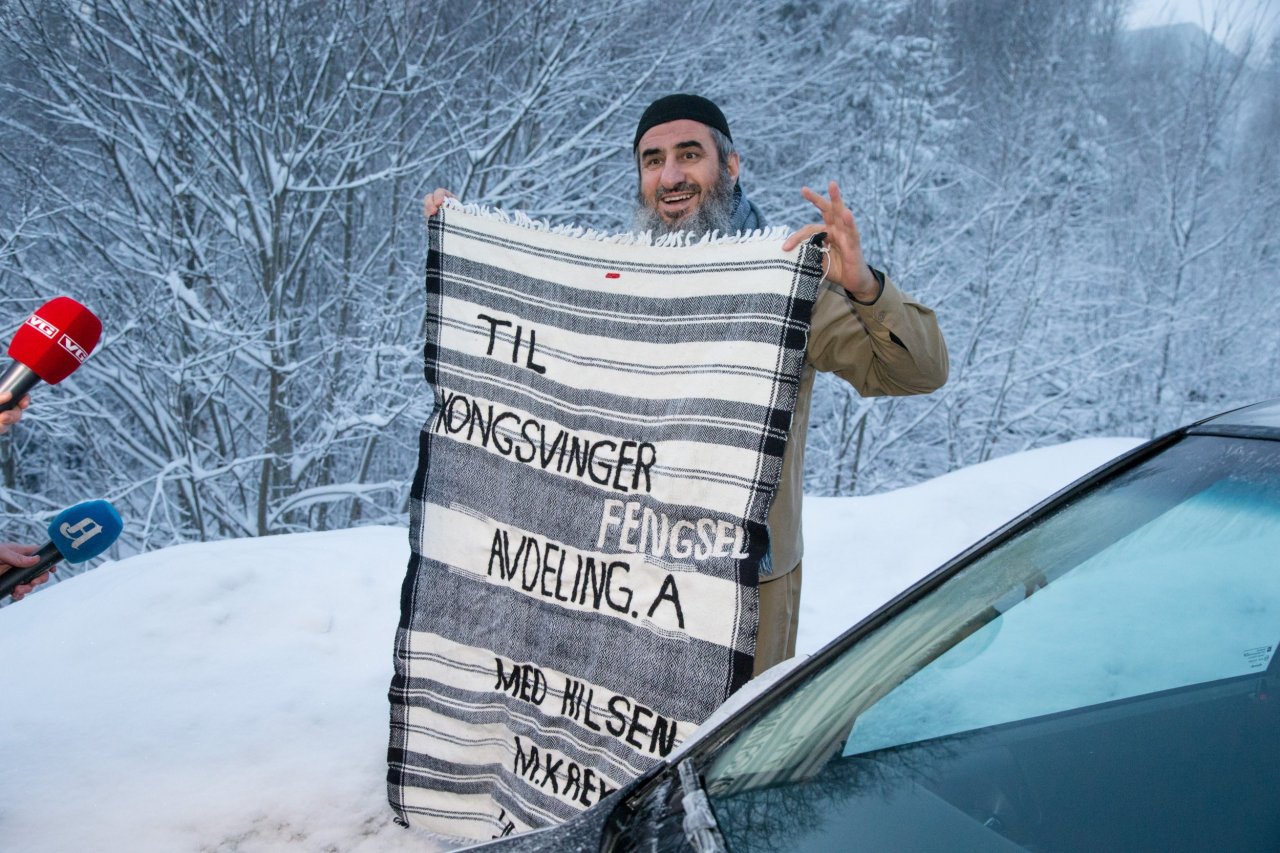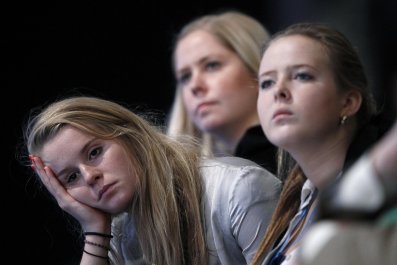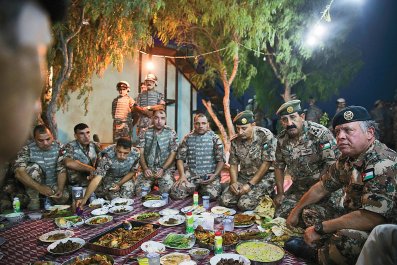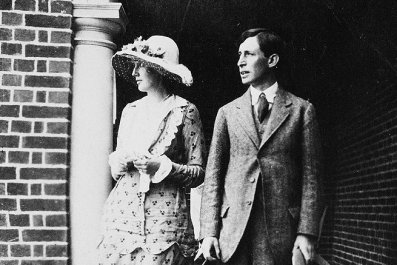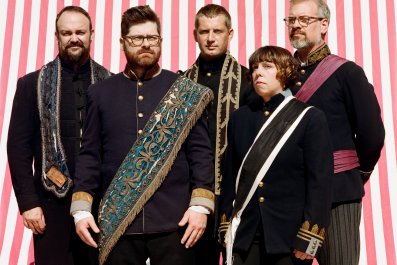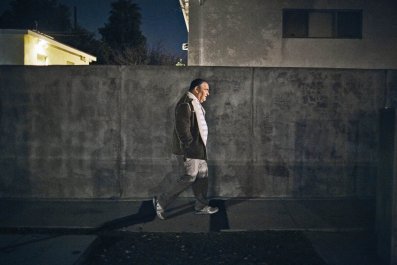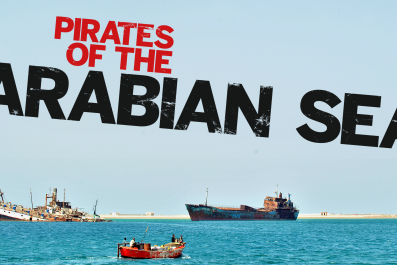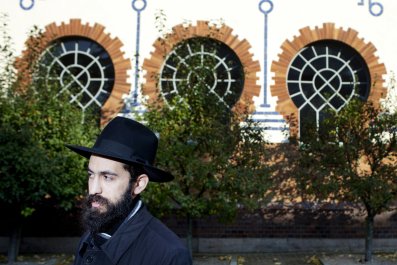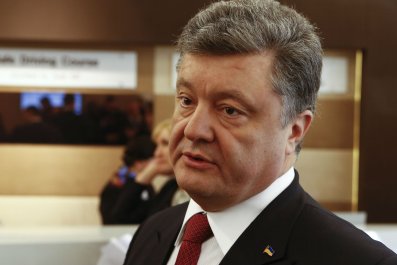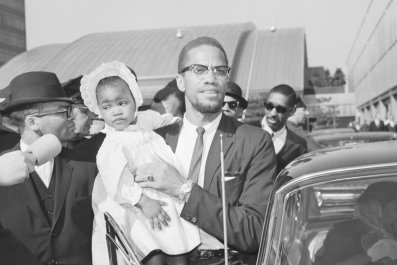Kyrksæterøra is a sleepy village some 300 miles north of Oslo, close to mountains and fjords. It is popular with skiers and walkers – and its 2,700 residents go about their business largely unencumbered by controversy.
Until now, that is. Because if the Norwegian government has its way, Kyrksæterøra will soon play host to arguably the most notorious man in Norway, a radical who has threatened the life of the current Norwegian prime minister and once praised Osama bin Laden as "the jewel in the crown of Islam". He is known as Mullah Krekar, although his real name is Najmuddin Faraj Ahmad. As the founder of the radical Islamic group, Ansar al-Islam, which has links to both al-Qaida and so-called Islamic State – Krekar, 58, is on both the United States and United Nation's terror lists.
Three years ago, in a sensational press conference in the Norwegian capital, he declared in Arabic: "My death will cost Norwegian society. If, for example, Erna Solberg [the Prime Minister] kicks me out of the country and is the reason that I die, then she will suffer the same fate." The words provoked outrage. Put on trial for making death threats, the Iraqi-born Krekar was jailed for five years, a sentence later reduced to 34 months. But last month, he was released, giving Norway's government a dilemma.
Despite being under an expulsion order since 2003, Norwegian law has determined that he cannot be sent back to Iraq because he could face torture or execution. But because he has been deemed a "threat to national security", the government does not want him in Oslo either. So Solberg's government came up with a novel solution. Krekar should be banished to Kyrksæterøra to live in a refugee centre. He will not be allowed to leave the village and must report to the local police three times per week. At the beginning of February, a court in Oslo confirmed that Krekar could be forced to move to the coastal village – a ruling currently before the Supreme Court.
For Ståle Vaag, the mayor of the Hemne Municipality, which includes Kyrksæterøra, the prospect of welcoming such a notorious new resident is daunting. "I don't understand why he has to come here," says Vaag. "We weren't asked for our opinion and when we approached the government and the Oslo police, we didn't receive a proper explanation. I'm not happy about that. I wanted to be informed much earlier."
Yet Vaag is also resigned. "We are open-minded people. We'll welcome him as we welcome other inhabitants and treat him well. We are not afraid of Krekar." When asked whether he would meet Krekar, Vaag replies: "I will not seek him out."
Two weeks ago, Vaag called a meeting of villagers to discuss the possibility of Krekar's arrival. At first, there was outrage. Now locals have become more used to the idea. Some have even joked about the Mullah converting "skiers" into "Shias" (despite Krekar being a Sunni Muslim.)
But there is also fear in the village. "They are afraid of what kind of person will come looking for him. I'm a little worried about that too," says Vaag. Krekar will still be able to reach his disciples on the internet, his lawyers say, and having spent time in prison, he is now viewed as a martyr by some. His following is expected to grow if he remains in Kyrksæterøra.
There are risks, too, for Herbjorn Jenssen, who runs the centre where Krekar will be staying. It houses a disparate group of residents: some are avoiding military service in their native lands, others are Afghans, Syrians, Africans, all fleeing conflict and bloodshed. Crucially, there are no Iraqis, who might raise his profile even higher. "Nobody in the centre has heard about him, they don't much know about him," says Jenssen, explaining that the asylum seekers in his care don't particularly follow Norwegian media because they are too preoccupied with events in their own troubled lands. "They just think this man is probably an asylum seeker, like everyone else, and should be left in peace."
But Krekar is not like everyone else. He is a household name. He arrived in 1991 as a refugee, but his refugee status was revoked in 2002. "Krekar stands out as a special case in Norway," says Anders Nyland, editor in chief of Norway's second largest newspaper, Bergensavisen. "He has been a big talking point for years."
In 2007, Norwegian newspapers reported that a Facebook page attracting hundreds of followers had been set up to raise funds for an assassin to kill Krekar. "For the murder of Norway's enemy #1," the page ominously stated. In 2010, an unsuccessful attempt was made on his life. On hearing the court's decision this month, Krekar's lawyer, Brynjar Meling, who has made a point of defending Muslims and immigrants charged with criminal offences and who has received a steady stream of hate mail as a result, immediately appealed to the Supreme Court. Meling says separating Krekar from his wife and four children in Oslo violates his human rights. Until the result of the appeal is announced, Krekar will stay in the capital with his family – but at a secret address.
Meling describes Krekar as a "man of principle" and believes the original decision made about his future is unjust. "He has served his time and should have the freedom to live where he wants and be with his family," Meling says. "Krekar has said he didn't mean to threaten anyone and that his words were a metaphor. He is clear that he has no power to do anything against anyone. The government is doing this just to show muscle, to act like it is doing something."
A spokesperson for the Ministry of Justice says that expelling Krekar to Iraq is still a top priority for the government, and that the situation is constantly reviewed. But Krekar's lawyers will fight extradition all the way. They say they'll take his case to the European Court of Human Rights in Strasbourg if necessary.
For now, Krekar and the villagers of Kyrksæterøra have one thing in common. They both wait for a definitive ruling.



